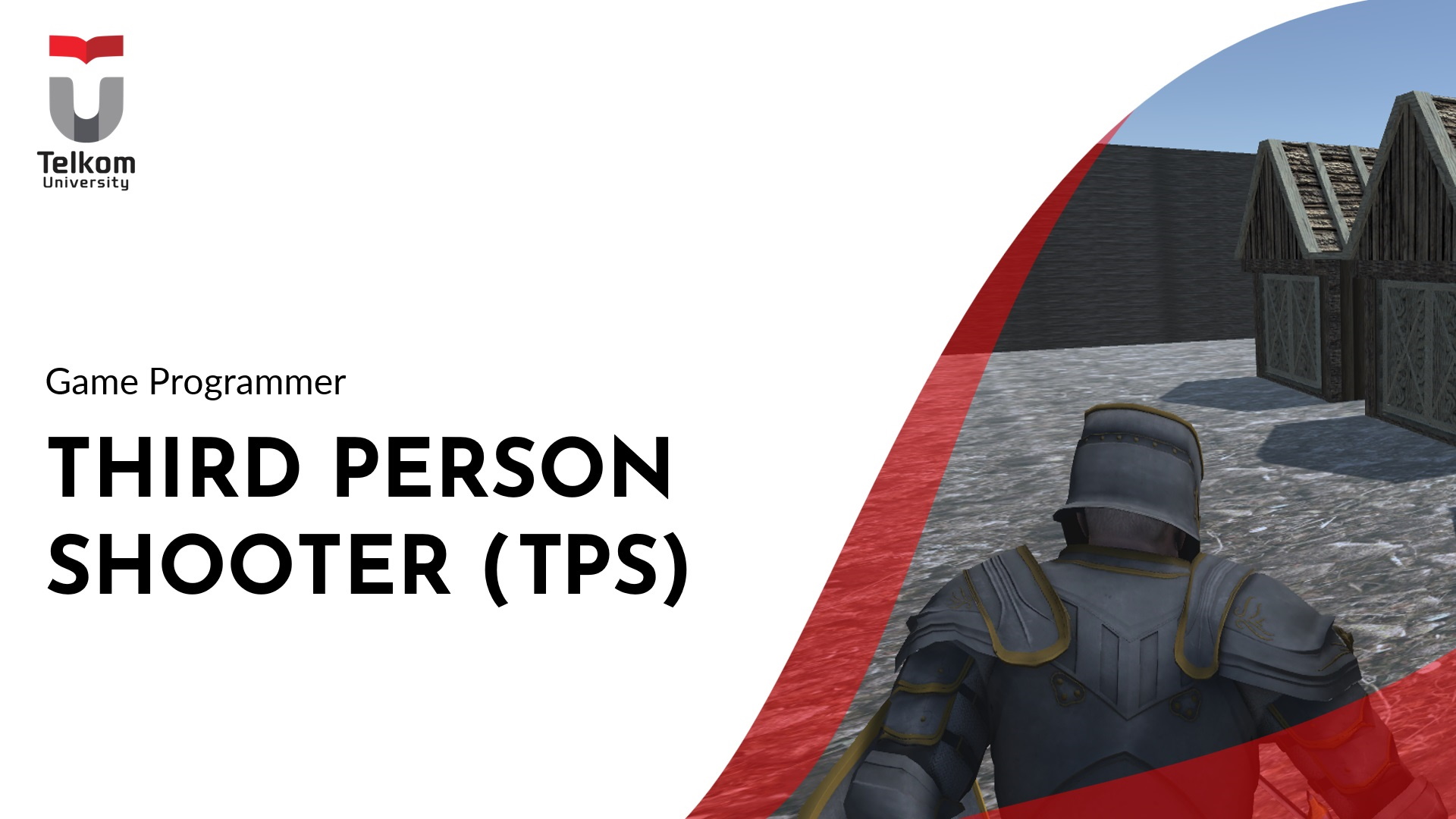1. Course Description
The Third Person 3D Game Development course aims to provide participants with the skills to develop a third-person perspective game, emphasizing character interaction within a 3D environment. Participants are expected to have a foundational understanding of 3D modeling and animation principles. The course covers materials such as Camera Follow Systems, Character Control, Interaction Mechanics, and Environmental Design. The teaching method is a combination of modules, videos, and self-directed practice using a "Predefined Game Project."
2. Course Outcomes
- Participants are able to design and implement third-person character movement and control.
- Participants are able to create camera systems that follow the player in a 3D environment.
- Participants are able to integrate interaction mechanics and environmental design in a third-person game.
3. Textbooks
- Roedavan, R., 2018, Unity Tutorial Game Engine, Penerbit Informatika.
- Doran, John., 2015, Building an FPS Game With Unity, Packt.
4. Prerequisite Courses
None
5. Credit Hours
2 Credit Hours (1 Credit Hour @45 Hours)
6. Learning Model
Self-Paced
7. Education Level
Undergraduate (S1/D4)
8. Field of Study
Informatics Engineering
9. Course Level
Basic
10. Learning Technology & Facilities
- LMS Open EDX: To access main materials and discussion forums
- Discord: For collaboration and communication
- Zoom: For virtual face-to-face meetings
- Unity and Visual Studio 2019 Community version: For game engine development
11. Hardware & Software Requirements
- Laptop/PC
- OS: Windows 7, 64-bit versions only
- CPU: X64 architecture with SSE2 instruction set support
- Graphics: DX10, DX11, and DX12-capable GPUs
- Unity version: 2019.x, 2020.x, 2021.x
12. Course Development Version
Course Version 3.0
13. Course Topics
- Terrain System
- Movement in 3D Space Systems
- Third Person Movement
- Implementing Mouse Orbit
- Character & Animation
- Humanoid Animation
- Humanoid Rigging
- Animation State
- Attack System
- Enemy Chase
- Primary Typology: Configure
- Alternative Typology: Obtain
14. Course Evaluation
- Progress Exam 1 x 1 = 50%
- Progress Exam 2 x 1 = 50%
15. Graduation Requirements
Students can pass the course with a minimum cumulative score > 51
16. Plagiarism Information
Any form of PLAGIARISM will result in a score of 0
17. Teaching Team

Rickman Roedavan
(Rikman Aherliwan Rudawan, S.T., M.Kom.)
Best-selling author of Unity & Construct2 Tutorial Game Engine. Lecturer in Game Application Programming and Supervisor of the Multimedia Research Laboratory at Telkom University. He has collaborated in international research with Universiti Teknologi Melaka Malaysia (UTEM) and Multimedia University (MMU) in the development of Game-based Learning products. Previously, he worked as a Senior Programmer and System Analyst in the Wargaming System and Flight Simulator fields at the state-owned enterprise PT. Dirgantara Indonesia (Persero).

